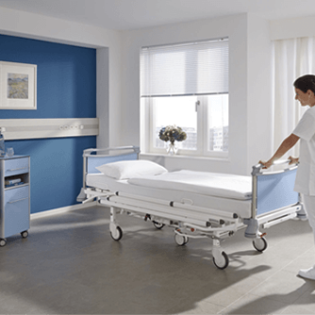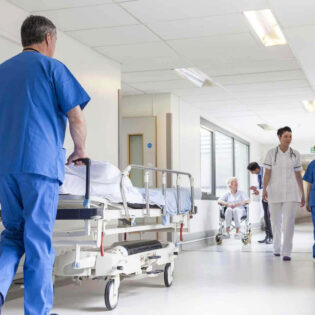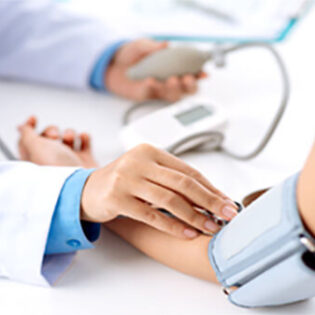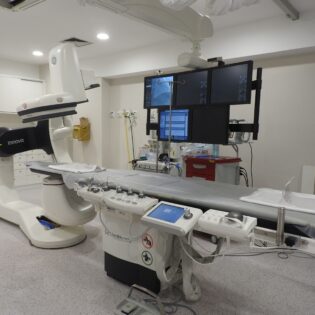
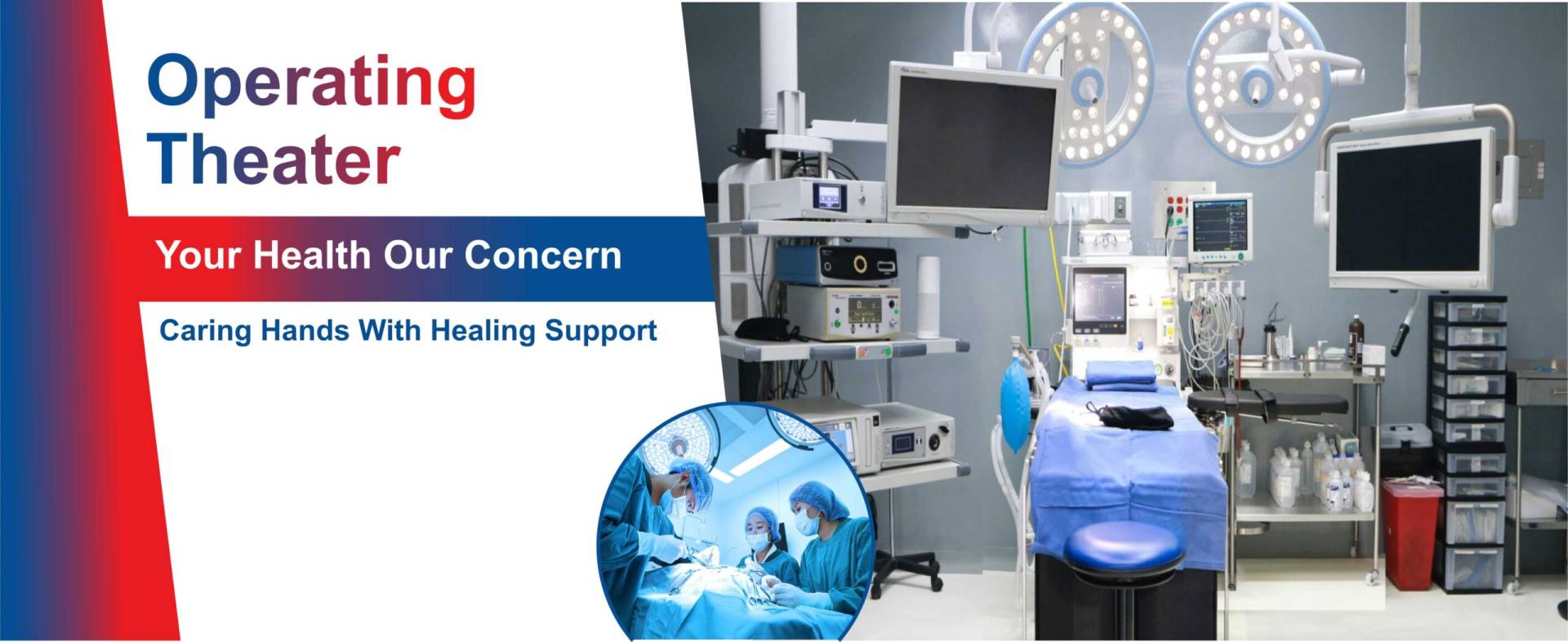


artur-tumasjan-qLzWvcQq-V8-unsplash-min
walter-otto-PT70CT6mATQ-unsplash-min
Slide
Slide
SPECIALITIES
PULMONOLOGY
GENERAL INFORMATION
PROCEDURE PERFORMED
GENERAL INFORMATION
Breath Safe and Stay healthy!
Pulmonary medicine is the subspecialty of internal medicine; it is an area of medicine that focuses on the health of the respiratory system including the lungs, upper airways, thoracic cavity, and chest wall. Pulmonologists treat everything from asthma to tuberculosis.
Department of Pulmonology at Umkal Hospital offers comprehensive diagnostic and treatment for diseases related to the lungs diseases, chronic obstructive pulmonary disease (COPD), pneumonia, chronic bronchitis, asthma, emphysema, tuberculosis etc.We have dedicated staff that comprise of experts Pulmonologist, well trained Nurses, respiratory therapists, technicians and available round-the-clock. The department also supports other departments for providing support and expertise in the ICU and for surgical and medical cases.
State of the art infrastructure available that includes Bronchoscopy (fibreoptic and EBUS) and Thoracoscopy, Respiratory Intensive Care, Pulmonary Function Laboratories, Pulmonary Rehabilitation Unit, Allergy Testing facility, screening for sleep disorders, smoking cessation etc. We provide the best care to the patients with our fully functioning laboratory.
Best Hospital for Pulmonology treatment in Gurgaon has best pulmonologist and state of art infrastructure to treat all types of conditions.
Most Common conditions that affects lungs and respiratory fact:
Asthma:
Asthma is an allergy and sensitive towards certain allergens. These allergens enter through the respiratory system and react with the immune system causing allergic asthma. It is a condition in that airways narrow and swell and produce extra mucus. This can make breathing difficult and trigger coughing, wheezing and shortness of breath. Both minor and major asthma problem interferes with daily activities and may lead to a life-threatening asthma attack as well. Asthma can’t be cured, but symptoms can be controlled. Asthma changes over time, it’s important to see doctor regularly to track your signs and symptoms and take required treatment on time.
Bronchiectasis:
Bronchitis is an inflammation in the lungs that some people call a chest cold. It can be a miserable, but minor, illness that follows a viral illness like the common cold or may follow a more serious condition like a chronic smoker’s hack.A person may be born with bronchiectasis or may acquire it later in life, usually as a result of inhaling a foreign object or due to recurrent lung infections. A cough, phlegm, and feeling tired are typical symptoms of bronchitis, but these are also symptoms of other illnesses, so getting the right diagnosis and treatment is important.
Emphysema:
Emphysema, it occurs most often in smokersbut it also occurs in people who regularly breathe in irritants.Emphysema destroys alveoli, which are air sacs in the lungs.The air sacs weaken and eventually break, which reduces the surface area of the lungs and the amount of oxygen that can reach the bloodstream. Those who suffer from emphysema have trouble exhaling air from their lungs. Cigarette smoke damages the air sacs in the lungs to a point where they can no longer repair themselves.Affected people may develop bluish-gray lips or fingernails from lack of oxygen. If this happens, seek medical attention immediately.
Emphysema evolves slowly over the years, and there is no cure; however, those who quit smoking are more likely to see the disease’s progression slow.
Chronic obstructive pulmonary disease (COPD):
COPD encompasses several respiratory illnesses that cause breathlessness, or the inability to exhale normally. The top cause of COPD is tobacco smoking. Long-term exposure to chemical irritants can also lead to COPD. It’s a disease that usually takes a long time to develop. People usually experience symptoms that includes shortness of breath, and normally cough up sputum (mucus from the lungs), especially in the morning.
Diagnosis usually involves imaging tests, blood tests, and lung function tests.
Pulmonary fibrosis:
Pulmonary fibrosis (PF) is one of the respiratory conditions that causes scarring of lung tissue. The thickened tissue prevents enough oxygen from getting into the bloodstream and vital organs. That causes symptoms like shortness of breath or hacking cough.It is more common among middle-aged and older aged people. It is a progressive disease, some of the patients takes years to become normal out of this.
Genetics may contribute to the development of PF, but in most cases the cause is unknown – a condition known as idiopathic pulmonary fibrosis (IPF). Each patient tends to have an individualized experience with the disease. There are four stages of pulmonary fibrosis: mild, moderate, severe and very severe.
The lung scarring in pulmonary fibrosis can’t be reversed. As there is no therapy present to stop the disease’s progression. Medications and other treatments can improve patients’ quality of life.
Tuberculosis:
Tuberculosis is an infectious disease; any person can get afflicted with TB. When a patient having active coughs or sneezes in an open manner, bacteria causing TB come out in the aerosol. This aerosol can infect person who happens to inhale it. TB is a serious infectious disease that majorly affects lungs. People with active tuberculosis must take several types of medications for many months to eradicate the infection and prevent development of antibiotic resistance.
Lung Cancer:
This is the most serious lung disease during which there is an overproduction of abnormal cells in the lung that leads to the formation of a malignant tumor. The common symptoms are cough, chest pain, weight loss and wheezing. After the diagnosis of Lung Cancer, the doctors can suggest the treatment options which suit the condition of the patient.
PROCEDURE PERFORMED
Pulmonologist can perform certain tests to diagnosis the lung related problems:
CT Scan
Chest Fluoroscopy
Chest Ultrasound
Pulmonary function test
Pulse Oximetry Test
Thoracentesis
Bronchoscopy
Respiratory Care Services:
Interventional Pulmonology:
Video-assistance Flexible Bronhcoscopy with the facilities of TBLB/TBNA/Foreign body removal/ diagnostic and Therapeutic Interventions to the patient.
Endobronchial Ultrasound (EBUS):
EBUS to carry out FNAC from deep seated thoracic lymph nodes and tumors/masses. Bronchoscopic Electrocautery: Instruments like Hot Forceps, Snare, Knife powered by cautery can be used for diagnosing and treating. Bronchoscopic Argon Plasma Coagulation (APC) is an application of heat produced by argon gas to coagulate nearby tissue without touching it to stop bleeding.
Pleural Aspiration:
This is a procedure wherein fluid accumulated outside the lungs in the chest cavity is taken out using a plastic cannula/needle for diagnosis of pleural diseases.
Chest Tube:
Various diseases involving the pleura (covering of lungs) cause accumulation of fluid/ pus/ air in the chest cavity. This compresses the lungs and has to be drained. A thin tube or a pigtail needs to be put in the chest cavity to drain this collection. This procedure can also be performed under ultrasound guidance when fluid is thick. Also the cavity can be sealed after the collection is drained to prevent re-accumulation in case of air of rapidly collecting fluid in cases like malignancy, liver and kidney diseases.
Pulmonary Hypertension:
Diagnosis and Management including right heart catheterization (PA Catheter)
Meet Our Team
Specialist Doctors

Dr. Varun Yadav
Department Of Pulomonology

Dr. Mayank Kapoor
Department Of Pulomonology
UMKAL HOSPITAL
What Differentiates us
Book An Appointment
Contact Info
Call Us
Emergency : 0124-4100000
Reception : 0124-4666555
Consultation : 8860077501
Our Location
A-520 Sushant Lok-1
(Near IFFCO Metro Station)
Gurgaon, Haryana - 122022
Email Us
info@umkalhospital.com


